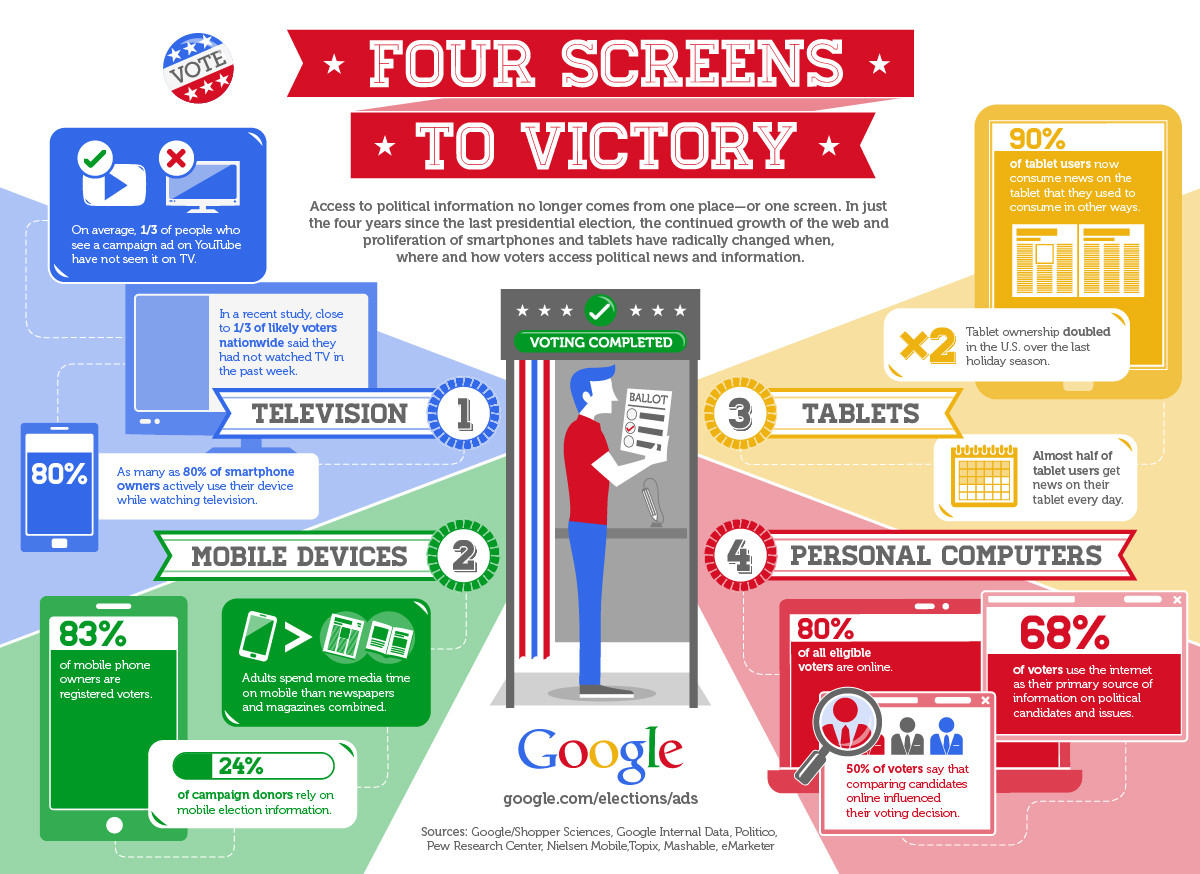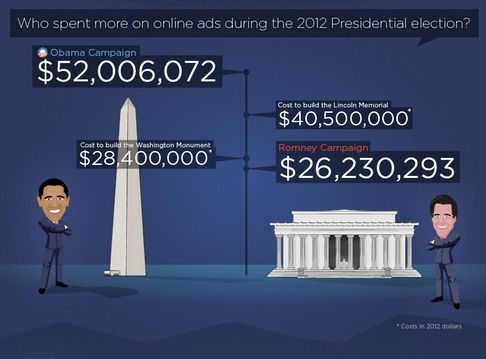Consider one important thing too about the election and the media: how they are financed. In most countries, political organizations use the public and private financing, introducing several people and companies which can donor the amount of money established by the law. Some countries have limitations of how much to spend, others don't.
At the moment to receive the donation of significant people/companies/multinational, people start thinking the correlation between the donors and how much they can influence to vote of X candidate. The money is an important fact, we know because, what is paid with the donation is political advertising.
Google made an infographic explaining how the elector access to political information (specifically political advertising).

In order to sell these ads, most campaigns chiefs decide to spend more money in Social Media, online videos rather than traditional advertising (specially TV); The televisions companies (broadcasters), in order to create more profits for these ads, put on air cheap programming like junk news or gossips shows, creating a perspective problem:
- What is the information the voter see? A political advertising or election coverage news?
What they see is crucial to them in order to understand for who they're going to vote or what candidate shouldn't be taken into account. (Hypothesis)
This lead is attached to the main question: the influence of media over a voter. There's a paper:
Kuhn, R. (2013). The Media and the 2012 Presidential Election. Modern & Contemporary France.
In this study, Raymond Kuhn explained that media has some influence in voters, specifically on those undecided, depending of their level of educations, age, sociological condition among others characteristics. In his own words:
While many have decided how to vote well in advance of the campaign, a high proportion (anything up to 40%) declare in the days and weeks immediately before polling that they are still undecided regarding their choice of candidate. (...) For these undecided voters media coverage of the candidates’ campaigns made a difference to their choice.
The days when both candidates attacked themselves, trying to diminish the amount of followers of X candidates are over. The media focus their content in people who are in the grey line, those who don't support one part or another, not trying to convert people from democrats to republicans, socialists to liberals.
EXTRA: Wire made a graphic explaining how much Obama and Romney spent in the 2012 elections.


